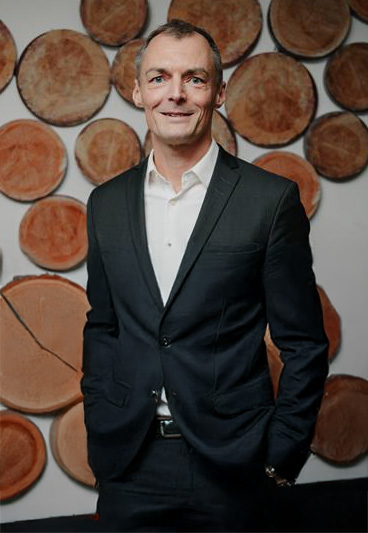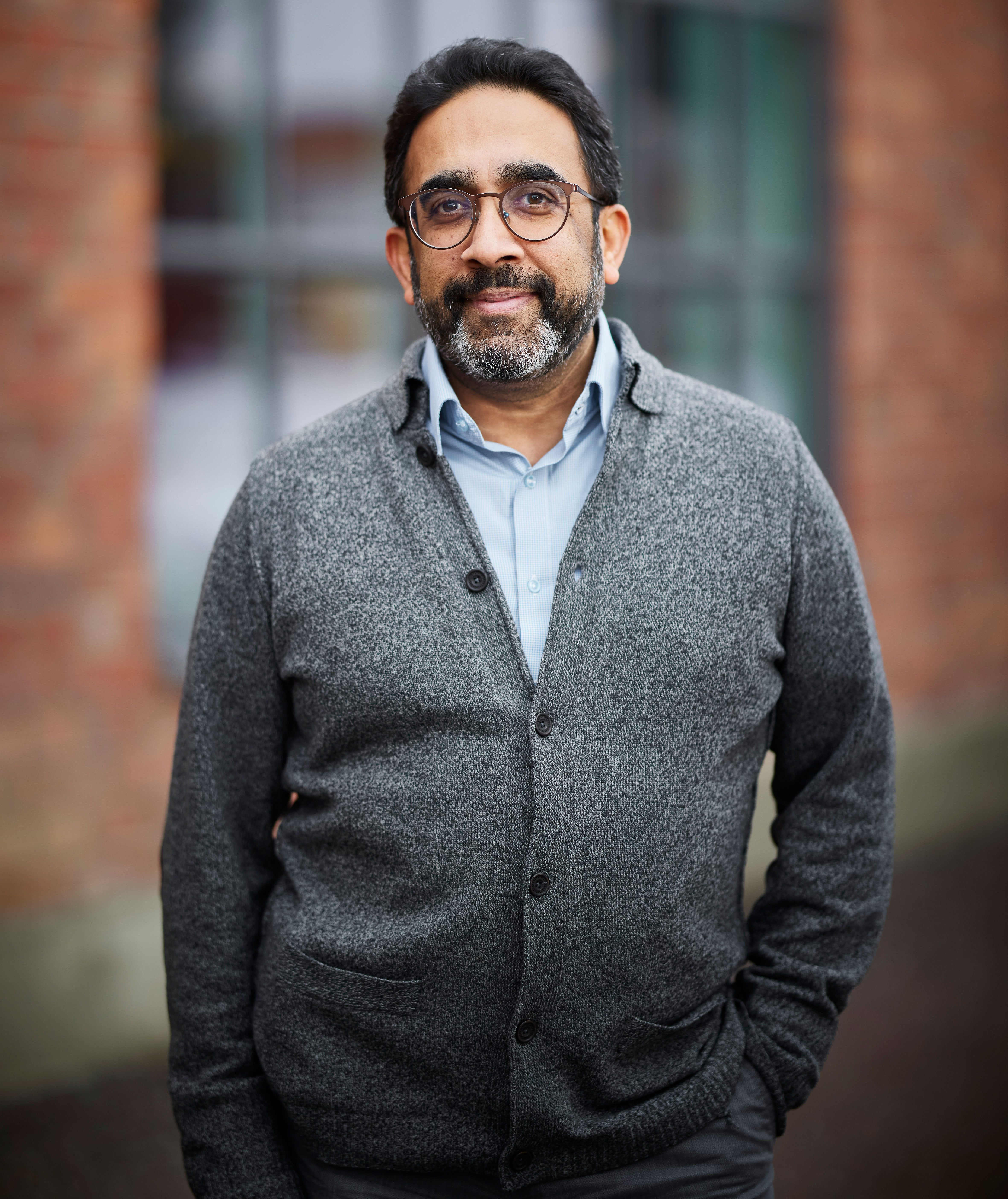In 2025, INCITE’s focus is on iron and steel, ahead of a major BREF (Best Available Techniques Reference Document) revision in 2026. For technologies like electrification, which can significantly cut emissions, this is a crucial moment. If electrification is captured in the BREFs, it becomes part of the regulatory framework that industries must follow.
Sweden’s coordinated role
On October 16, a workshop in Stockholm celebrated “One year of INCITE – keep up the pace”, bringing together EU officials, Swedish government agencies, industry representatives, and researchers. Discussions focused on how technologies are integrated into the IED process and how Sweden can continue to shape that agenda. The event was hosted by the Swedish Impact INCITE project, in collaboration with Jernkontoret, the Swedish iron and steel industry’s trade organization, and the Impact Innovation platform Swedish Metals and Minerals.
 Nicolai Schaaf, Sustainability Manager, Kanthal.Impact INCITE is a national initiative to give Swedish industry a stronger, more coordinated visibility in INCITE. The project was launched in November 2024, with participation from SSAB, LKAB, Kanthal, Teknikföretagarna, Swerim, Lund University, and Jernkontoret.
Nicolai Schaaf, Sustainability Manager, Kanthal.Impact INCITE is a national initiative to give Swedish industry a stronger, more coordinated visibility in INCITE. The project was launched in November 2024, with participation from SSAB, LKAB, Kanthal, Teknikföretagarna, Swerim, Lund University, and Jernkontoret.
“That level of national and international presence at this event is not a coincidence,” says Nicolai Schaaf, Sustainability Manager at Kanthal. “No other member state has built this kind of project. It demonstrates what can happen when a sector takes proactive initiative to work with academia and policymakers, showing that we can collaborate to create enabling conditions for industry transformation. It also shows the Commission and other member states what an active national contribution can look like.”
The profiles represented in the project reflect this, including roles such as innovation manager, public affairs manager, sustainability manager, policy expert, and researchers. The team makes sure Swedish technologies are visible in INCITE’s processes and on its platform.
From Seville to Stockholm
 Earlier this year, Kanthal also participated in INCITE’s first sector-specific workshop in Seville. Dilip Chandrasekaran, Director of Business Development, presented on electrification of slab reheating, gas heating for DRI, and ladle and tundish preheating.
Earlier this year, Kanthal also participated in INCITE’s first sector-specific workshop in Seville. Dilip Chandrasekaran, Director of Business Development, presented on electrification of slab reheating, gas heating for DRI, and ladle and tundish preheating.
“One of the aims was to discuss how ready different solutions are,” Chandrasekaran highlighted. “We wanted to show where resistance heating already fits into the chain. It’s not about something that might work in the future; it’s something we are already scaling.”
The Seville event made clear that the conversation had shifted. The debate was no longer whether electric heating works but how it can be integrated and scaled in practice.
Finding an opening
Through a sustainability and commercial lens, it is important that the potential in electric industrial heating is reflected in the very documents that guide investment and permitting.
Kanthal’s involvement with INCITE began before Seville. When the updated BAT documents for ferrous metals processing (FMP) were reviewed, electrification was clearly underrepresented.
“From a compliance perspective, that may put you in an odd situation if you already have a high degree of electrification. But both through a sustainability and commercial lens, it is important that the potential in electric industrial heating is reflected in the very documents that guide investment and permitting,” Schaaf explains.
This gap created an opening. Kanthal highlighted that its electric furnaces were not experimental. “People didn’t realize these technologies already existed,” Schaaf recalls. “We showed them that our walking beam furnace is 30 years old, our pit furnaces are also old, all of them being electric furnaces. We weren’t a research project or a startup. Still, the awareness of our solutions is too small.”
To better understand the latest advancements, INCITE conducts “first-of-a-kind” visits, where delegations travel to member states to observe advanced technologies in operation. The inaugural visit took place in Sweden, where the team met with companies such as Kanthal, HYBRIT, Stegra, and GreenIron, accompanied by an event at Jernkontoret.
This visit and event catalyzed the Swedish Impact INCITE project, which aims to build on that momentum. Since then, Sweden has emerged as one of the most engaged member states, with the INCITE team frequently highlighting the significance of Sweden's participation.
The recent event served as a follow-up on both INCITE and Sweden's role as a member state.
Why participation matters
For Kanthal, the value of participating is not about immediate commercial returns but about long-term positioning.
“Being part of this project has allowed us to put our heating solutions on the map as innovative technologies. It helps us ensure that electrification is treated not only as a technical option but as something that should be embedded in policy and regulation. That’s how it can enable decarbonization across iron and steel and beyond,” Chandrasekaran stresses.
He further explains, “What we are doing is collaborative problem-solving. INCITE brings regulators together with technology providers so sustainability goals can be met. For Kanthal, it’s where commercial goals and sustainability ambitions align.”
Looking ahead
Impact INCITE Sweden runs until December 2025, but its effects will endure beyond that. The upcoming BREF revision for iron and steel starts in 2026, and the groundwork being established now will shape which technologies are incorporated into the rules.
For Kanthal and the Swedish industrial sector more broadly, the task is to ensure that the high sustainability levels and technical solutions are not only visible but formally recognized as best available and raising the bar for the entire European industry.
This isn’t about short-term wins. It’s about shaping the conditions the industry will have to operate within. If electrification is part of the rules, its widespread adoption and the path to decarbonization become much more achievable,” Schaaf concludes.
The Impact INCITE project is funded by Impact Innovation and is part of the Swedish Metals & Minerals program. The financiers are the Swedish Energy Agency, Formas, and Vinnova.